Hello and welcome to Episode 25 of What China Wants, looking at China’s relationship with Africa.

Today Stewart and Sam are joined by Eric Olander, the founder of The China Global South Project (which used to be the China Africa Project).
We have known Eric for a while and he is an absolute authority on China’s relationship with the continent of Africa. He is also happy to have a robust conversation, which this certainly is.
Some highlights from our discussion:
There is not one “Africa” but a collection of countries, and these all have different relationships with China.
Economically, although there are some issues with elite capture and opaque debt, the issues cannot be placed entirely on China’s shoulders – African countries have agency in this.
A major problem for Western influence in Africa is that the West doesn’t invest there, and so many African nations go to China as the country with the development cash.
Politically, African countries are important to China mainly because they provide votes at multilateral organisations like the UN. This protects Chinese interests.
Militarily, China uses African countries as a place for it to get some military experience, for example by providing large amounts of peace keepers.
In the event of a major breakdown between China and the West, and if asked to choose sides, then Africa en masse would probably hedge their bets.
You can also listen to the podcast on Apple, Amazon, or Spotify.
As always please do share, comment, and subscribe. We’ll be back soon with more What China Wants.
Many thanks for listening.
***
Here is the transcript:
Sam Olsen: Hello, and welcome back to What China Wants with Sam Olsen and Stewart Paterson, as always. Today we are examining China's influence in Africa, and to do so, Stewart, I am going to start with a few quotes about the relationship:
"Africa has chosen China, it is our choice, and we stick to that" said, Burkina Faso's former President Kabore.
"China has helped Africa to get out of the blackmail of some of the Western countries, which wanted to treat African countries as if they were slave countries", said Uganda's President Museveni.
And finally, "I am a true believer that the success of the world and development and peace depends on Africa's success, and China's cooperation with Africa is fundamental for Africa's success", said the UN Secretary General Antonio Guterres.
So Stewart, the question we are asking this episode is whether or not China is actually good for Africa. To do so, we are joined by Eric Olander, the co-founder of the China-Global South project. If you have not read Eric's work before, he is a journalist with more than 30 years of experience supporting, producing and managing newsrooms for some of the world's leading editorial organisations, including CNN, France 24 and, of course, the old BBC. He founded what was then the China-Africa project back in 2010 I think, Eric, was that right?
Eric Olander: That is right, 2010.
SO: And then he went live properly in 2019, rather than just being a little hobby, it is now your main work, right?
EO: That's it, that's right, it puts food on the table these days.
Stewart Paterson: Well, that's brilliant Eric, welcome to the podcast.
EO: Great to be here guys.
SP: So look, let's set the scene a little bit, because on What China Wants, we have not actually really talked about Chinese influence in Africa before. Obviously, we have got 50 plus countries in Africa, perhaps you could just set the scene a little bit for us. Where is China's influence greatest in Africa, or is it spread fairly evenly across the continent?
EO: Well, this is a very complex, multifaceted relationship that oftentimes to the West, and even to the Chinese, is boiled down to very simplistic terms that masks the nuance that's needed to understand this. What I'm hoping for your audience today is that they leave today's show, more confused, less clear, and more boggled about this relationship, because too many times people come into what China is doing in Africa or other parts of the global south with their minds already made up. They think, 'Well, China is a great thing for Africa. It has done amazing things. It's broken, as you quoted Sam, many of the dependencies that African countries had on Europe". Yes, that's all true. But we can also spend the whole time on the show saying that China is the worst thing that has ever happened to Africa, in terms of environmental destruction, in terms of elite capture, in terms of any number of different things, trade imbalances, we're talking about debt problems now as well, all of that would be true, too.
So if you are looking at this complex relationship from either that ‘it's all good’, or ‘it's all bad’, you are missing half the story. I think that is a very important starting point. So, this is a relationship that, depending on the country, depending on the region that you are in, in Africa, it varies wildly, it is a highly distorted relationship. There is no such thing as Africa. And I know this first-hand, because one of my employees now is trying to fly from Mauritius to South Africa, and cannot get a visa. He cannot get a visa to fly from Mauritius to South Africa, the South Africans won't give him a visa. My point here is this demonstrates that at the end of the day, Africa is a collection of nation states, and we oversimplify it by calling it Africa. China looks at it increasingly at the nation state level.
When I say this is a highly distorted relationship, 62-63% of all African exports come from just three countries: Angola, the DRC, and South Africa. Two thirds of exports for an entire continent come from just three countries. When we look at the imports, about five countries dominate about 50-60%, of all the imports. So that means that 40 to 50 countries do not really have a deep economic relationship; there are a lot of imports often coming in, but not a lot of exports, so it is a highly, highly distorted relationship. When we look at vaccine distributions, for example, China got a lot of credit for distributing vaccines to Africa. But it turns out when you look at the numbers more carefully, 60-70% of all the Chinese vaccines went to about six countries for the bulk of the pandemic.
Then when you look at the debt issue, too, we talk about Chinese debt in Africa. Let me just be very, very clear here. Africa does not have a Chinese debt problem. About 10 African countries have a Chinese debt issue, but even when you look at those 10 African countries, the quantity of Chinese debt versus the whole is actually often quite small. Kenya, for example, it's about 10%. Even though Kenya is listed as a country that has a serious 'Chinese debt problem'. So you see the complexities of this, that you have to look at it really at a very micro level to understand the nuances of it all.
SP: Eric, that is fascinating. So can we just drill down a little bit into the debt issue, because obviously, this has attracted a huge amount of attention, not just in Africa. We have gone through a period of a very strong US Dollar, which has had a big impact on emerging markets, generally, around the world. A lot of frontier and emerging markets appear to be struggling with their debt repayments.
Are you comfortable with the numbers that you see on Chinese lending to Africa that you are actually seeing the whole picture? Because one of the issues that for example, [Kenneth] Rogoff writes about has been the lack of transparency of China's capital exports, that we simply can't account for what we know are a large part of China's capital exports. So there's a sort of suspicion out there, shall we say, that there is a lot of off-balance sheet debt, that probably is not being counted correctly, might that be applicable to Africa?
EO: It is applicable around the world. So again, when we look at these debt numbers, there is what we know and there is what we don't know. Remember when Donald Rumsfeld said there are the 'known unknowns' and the 'unknown knowns', remember that from the Iraq war? We have to apply that same type of thinking to Chinese debt. Let's look at what we do know, that in Africa today, the total amount of Chinese debt is somewhere between 12-18% of the continent's total debt. Now, that is surprising to a lot of people, because the perception in the West is that the numbers are significantly higher. We also know that over a 20 year period, starting in about 2001 or 2002, China has lent about $150 billion to African countries, and a third of that is concentrated in Angola alone. So if you take Angola out of the picture, and the numbers actually go down quite a bit.
Now you have talked about this issue of the lack of transparency, let's kind of noodle that just a little bit. So there is this opacity in Chinese lending that is the bane for the IMF, the World Bank for private investors, for everybody trying to get their grasp of what's going on here. However, remember, on a contract like this, there are two sides to these parties here. We always put all the burden and the responsibility on the Chinese for the lack of transparency. I'm surprised that you and other commentators never say "why haven't African governments adhered to their own laws, which require transparency, sometimes under their constitution, to force their legislatures to be able to publish these contracts?"
Surely, the burden is on the borrower, not on the lender? This is about the borrower's terms here. The borrower can insist, as the constitutional law says in Kenya, that procurement contracts are made public. Why hasn't the Kenyan government publicised the Standard Gauge Railway contract? Now there is a nondisclosure agreement in that contract, but the Kenyans did not have to agree to that. They could have said, "Listen, this is in our laws, you have to publish this." It's the same thing, by the way, in Zambia. Cameroon, incidentally, has published their contracts, and guess what the sun came up the next day. Ecuador published its contracts, and the sun came up the next day. So that is one of the issues, and one of the frustrations I have in the discourse is that all the burden is put on the Chinese side. The Chinese deserve pressure for this, there is no doubt.
But here is the last part in terms of the off-book lending. This is something that AidData, which is the William and Mary research outfit, has looked at quite a bit. The numbers are staggering in terms of what they're thinking, of these emergency loans now that are flowing from China into the global south, $35-40 billion, is what they're looking at, since 2017. That is disconcerting, because when creditors, when ratings agencies, when investors all go into look at Country X, Y, or Z, they do not know the full scale of the P&L of that country, because of that lending problem and the opacity. Now, part of it is intentional, the Chinese do like these nondisclosure agreements. Part of it also is just accidental. There are a lot of different creditors, so when state-owned enterprise X in China lends to state-owned enterprise Y, in an African country, often it does not get counted as official debt. But the IMF, and investors and Wall Street like to look at that as total aggregate debt, so it gets very, very complicated.
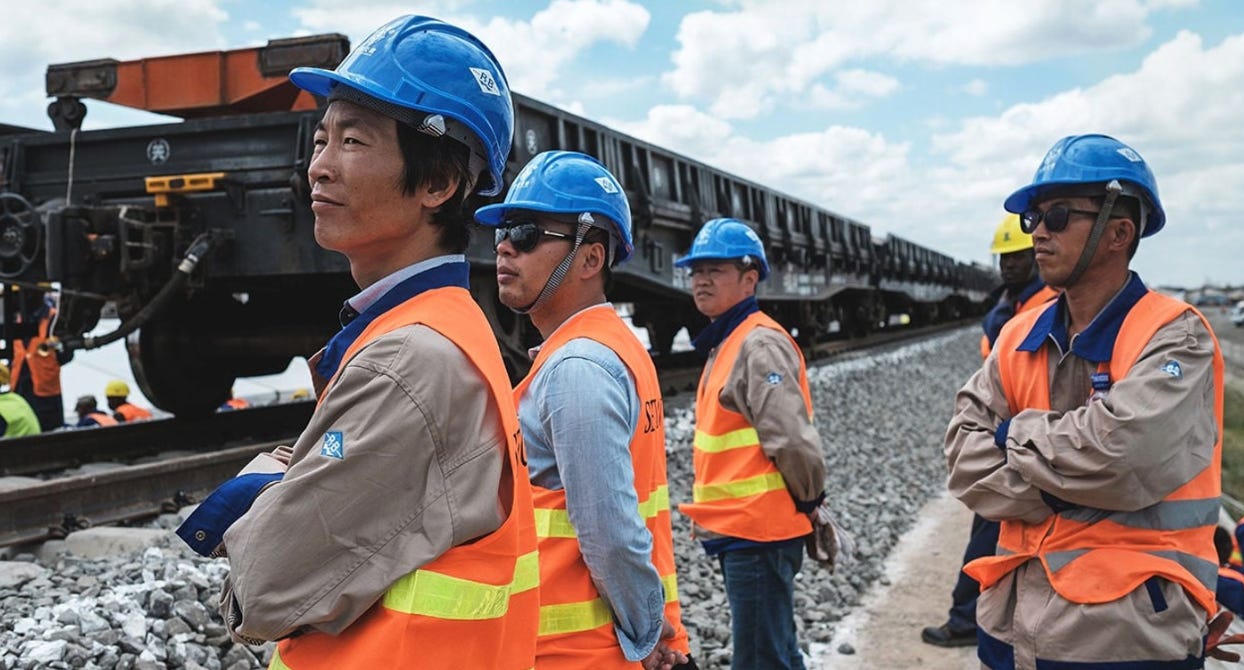
SP: That is really interesting, Eric, and I suppose in defence of those people who do point the finger somewhat at China about this, China has chosen for example, not to be a member of the Paris Club, China has chosen not to disclose its cross-border lending numbers to the Bank of International Settlements, etc. There is a sort of institutionalised reluctance on China's part to disclose where this goes, and I suppose it brings us on a bit to the subject of elite capture when you were talking about African countries themselves, breaching their own legal or even constitutional obligations to be transparent about the finances.
One of the issues that Sam and I have been studying in ASEAN in particular, and just generally across Asia, has been this issue of elite capture where the business or political elites, and often they're pretty much hand in glove, if not the same people in various countries, have had their pockets lined in one way or another in such a way as to motivate them not to be transparent in their dealings with China. Is that an issue? You have mentioned Angola already, and I think there are some very rich people in Angola as a result of the oil relationship with China. Is that fair or not?
EO: I think the argument on elite capture when it is presented the way you have just presented it - and please, I don't mean any disrespect - but it is a little bit sloppy in the analysis, only because the nature of this type of engagement is by definition done by elites. It's the World Economic Forum crowd that does this kind of stuff, it's the Davos crowd. This is all done under Swiss commercial law, and so there is nothing new what the Chinese are doing compared to what the French were doing, what the British were doing, and what the Americans have been doing. This is the nature of this type of finance.
I don't know what elite capture means. I have family who live in Paris, and up and down Avenue Foch, are a whole bunch of African dictator family houses, what's that? Is that elite capture? I just don't know what that means, in this context.
SO: Sorry, let me just interrupt there, because I think that elite capture is something that has been bandied around as a term for a while without really, people digging into what it means. For us, it is quite clear what we mean, which is that elite capture is when the elite of a certain country are co-opted by another country, whether it's China or anyone else, to do things that are in the interests of those individuals at the elite level in contradiction to the interests of the country that they represent.
EO: Okay, so if that's your definition, then we should talk about the role of Wall Street because they have engaged in elite capture as well. I am not trying to do what about-ism here, that is not what this exercise is about. What I am trying to point out is that I think the whole swamp is dirty and rotten. And I think singling out the Chinese as separate from the others to me is highly selective. Do you know what I mean? Yes? Are the Chinese engaging in elite capture in places like the Republic of Congo? And even to some extent in Angola, yes. But should we shocked and grab our pearls? That is the nature of global finance today.
But also, here's the weird part about this, that discussion coming from the West infantilises the African agency in all of this, because basically, what you're reducing and boiling down African agency, all this is saying, "Well, the reason why they are doing this is because the Chinese are so savvy and sophisticated to capture them. And they are so greedy, these people that they're going to stuff their pockets full". There is some truth to that, but at the same time, that argument completely overlooks the desperation that African governments have in raising capital on the global markets. The risk premium that Wall Street and the city charge for bonds is absurd. The fact is that the United States and the European Union have all bailed out of funding infrastructure.
So if you are a president or prime minister in Africa, where are you going to go to close the $100 billion a year infrastructure gap? Where are you going to go?
SO: You raise a very good point, Eric, and this was one of our next questions in terms of the West's relationship with Africa versus China. It is often heard in western commentary, that the Chinese are being rapacious when it comes to Africa to country X, country Y and country Z, and, what they need to do is to stick with Western liberal principles and so on. But the problem is, as you point out, and this is something that Stewart and I have pointed out a lot in terms of the developing world, that it is somewhat hypocritical for the West to tell them to say no to China when the West are not actually coming up with many of the investment goods.
What really struck home for us, is when you have Joe Biden and then Boris Johnson talking at the G7, the last one, about the Build Back Better scheme, which is now being replaced by PGII. And the point on that is, well, how much money is actually being put into that? There is an awful lot of talk about it, but there is very, very little concrete on the ground. Therefore, it is somewhat strange if we are trying to say on one hand, that Africa as a continent, never mind the individual countries within it, develop as part of some humanitarian push by the West, but then the West is not giving them the economic and political tools to do so above and beyond aid, which is not something that is particularly popular in Africa. What would you say, Eric, to Western politicians who do complain about Chinese influence in these countries?
EO: Well, I am blessed that I do have the opportunity quite a bit to speak with Western politicians, and this is exactly what I tell them. "Unless you've got something better, shut up. Shut up". Because at the end of the day, here's the problem. People are making decisions based on what they see on the ground. What do they see? US-Africa trade is what 64 billion dollars, and it has been flat and going down steadily for five or six years ever since the United States stopped buying Nigerian oil. It has basically been on a downward trajectory. The African Growth and Opportunity Act for the United States has been good, but it has not been revolutionary, it hasn't really changed the course of African trade. Don't listen to what American politicians have to tell you on that because at the end of the day, we see what the trade numbers look like.
We know what Europe's policy is on Africa, which is to keep the brown and black people on their side of the Mediterranean. The EU commissioner for Foreign Affairs was very clear a couple of weeks ago, remember what he said, "we have a garden here in Europe and the rest of the world is a jungle." He just said the quiet part out loud. Your politics today do not want these people in Europe, especially in the UK, but also in Italy, also in France, and also in Germany and Sweden today. They see the same news that we do, they have YouTube, they have Facebook, they have the New York Times, they are not stupid.
And then when Antony Blinken, who has been lecturing Africans on the green transition, just transition, climate change, sustainability, and all the Europeans have been saying the same things - oh, except until Germany runs out of gas. Then he shows up in Algeria saying he wants Algerian gas. The hypocrisy and the duplicity is just mind blowing. So when the US and Europe show up and start talking about how they should turn away from China, you get a very strong reaction from people like Cyril Ramaphosa in South Africa on the Huawei issue, who accused the Americans of blatantly being jealous. The Kenyans have turned away too, remember earlier this year, former President Uhuru Kenyatta, he literally said to the cameras in January while he was visiting, "we don't want lectures". Now, here's the problem. The European press in the US press never covered that, so you never hear that.
SP: So Eric, if we were to look at some of China's investment into the continent, and you can choose some specific examples here, what would you hold up as being the best examples of well targeted investment that has had a dramatic economic impact, and in which both parties have walked away with a satisfactory outcome?
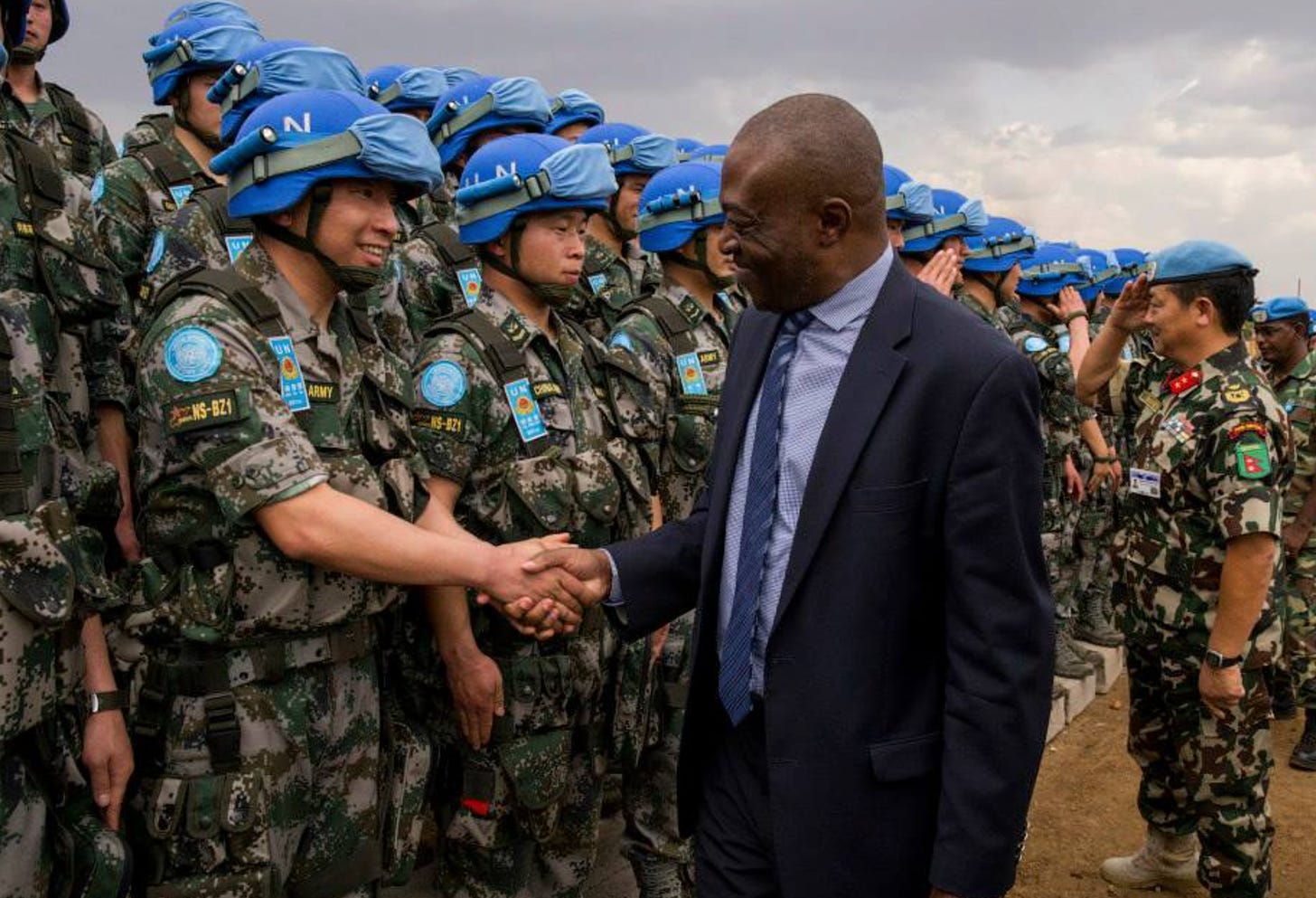
EO: We need to be very careful, because a lot of people confuse these loans with investments. Those loans are not investments, those loans are loans. So that's a for-profit loan, that they are going to get a recoup on their investment when they are building these highways in the infrastructure. That's not investment. That is a loan that they are giving to a sovereign government to build.
So China's FDI stock right now in Africa stands somewhere around $45 billion. In many ways, again, China is the indispensable country for many African countries. Let's look in the tech business right now. If you live in most of Africa, there's a chance that you are using a Transsion phone. Transsion is the brand that you have never heard of in Europe or the United States or elsewhere, but they have about 60% of the entire African device market. They are absolutely kicking butt when it comes to mobile.
They not only have the dominant mobile brands, they are also controlling the walled garden platform for it. They are funding start-ups around it. So when you look at the number one music, streaming service is Boomplay. That's the only place in the world where Apple and Spotify are getting beaten, and Boomplay is a Chinese joint venture. You have also the automotive market now where Chery, which is a Chinese brand, is outselling European and American brands in South Africa. You have StarTimes, which is one of the largest pay TV providers, again, all private. Obviously, you have Huawei, the private company with lots of shady weirdness in the back - I think of in many ways is semi-private just because of the lack of transparency in what they are - but nominally private. They have built huge amounts of the 3G, 4G, and now 5G networks. So, I think tech is the one area and investment where China again has just been absolutely incredible.
I was living in Kinshasa when the first Huawei mobile phone started coming out. This was, you have to understand, absolutely transformational, that people for the first time could talk to somebody over the horizon. Since then, the Chinese have come in with innovation on the product side. They are building apps and services on fintech. The Chinese VCs are very active in places like Nigeria, and again they're customising products, specifically for the African market. Transsion now has a $7 billion market cap, mostly based on sales in Africa. This proves that Africa is an opportunity if companies want to invest and build products and services that are tailored for local markets. We in the US in Europe, look at Africa and say the margins are not high enough. I think Transsion is an example of how that is really a misguided notion.
SO: Thanks, Eric. We have spoken a lot about the economic side, but in terms of the political relationship, what do you think that China wants out of the continent? Obviously, again, it is too hard to be generalised because it is a huge place of 50 plus countries. But if you could, just give us a couple of examples from different countries as to why the relationship is important for China specifically?
EO: So I am alone on this one for the most part. But I am going to tell you right up that I do not think that Africa is economically that important to China. In many ways Africa is like the battered spouse that has been denigrated, and told you are worth nothing, it has been abused for that the whole relationship. For 400 or 500 years, people have told Africa and Africans that the only value that you bring to the global economy and to the global political order, is the stuff that comes out of the ground. Everything else we do not care about.
When you look at the Chinese, and today the Chinese are doing about $254 billion of annual trade [with Africa]. While that is significant, compared to other bilateral trading partners, the fact is that that accounts for less than 3% of China's total global trade. Here is the interesting part, as China's global trade has increased, African trade has remained flat at about 2%-3%. That means again, that for the most part, China now does not need Africa anywhere near as much as it did 20 years ago when it first went there because it has the Belt and Road now.
All of the numbers coming out of the Middle East and the Persian Gulf show the Saudis are supplying more oil, and Brazil is supplying more food, so they [China] can go now for the oil, mineral and timber that they used to buy in Africa, pretty much anywhere in the world to get that, here in Southeast Asia, or South America. Bear in mind that they are doing twice as much trade with South America than they are with Africa. Africa rests firmly at the bottom of their trading partners and their trading relationships. So why is this relationship important?
Politics to me is the driver for this because Africa more than any other region in the world votes as a bloc at the United Nations, at the World Health Organisation and at the IMF. This is so important for the Chinese as they are now trying to form a coalition of countries to push back on the US and Europe over issues like Xinjiang, over issues like Hong Kong over territorial issues like Taiwan, the South China Sea, issues like Huawei, to fight back and to push back on narratives on COVID, for example. In all of these priorities for the Chinese, African countries and developing countries are proving to be incredibly useful to the Chinese. And so, I would say in many ways that the relationship, while it started with an economic priority is now transitioning to a political priority. This is why these letters that show up at the UN Human Rights Council or at the UN against sanctions, for example, on Ethiopia, things like that. African countries rally around in groups and in blocs, and really give legitimacy and validate so many Chinese positions that are currently under assault from the US, Europe, Japan and Australia, for example.
SO: Okay, so what you are saying is that the value is more on the political side. Militarily, is there any advantage to China be involved in, in Africa?
EO: Yes, so militarily, and in many ways the military dimension is just one example of this, but Africa provides China a space where it can experiment with things that it cannot do in other parts of the world. It would not be possible for China to deploy armed peacekeepers into Central Asia because of the proximity to the Russians, it would not be possible for them to deploy armed peacekeepers into South America, because that is in the sphere of influence of the United States. Traditionally, it would not be possible to do that in Southeast Asia because of the historical complexities of that. But in South Sudan, it is possible.
China is the largest supplier of peacekeepers among the P-5 on the Security Council, and it is able to do logistics training, it is able to do supply, it is able to get combat experience. It is able to give its forces opportunities that it cannot get in any other part of the world. So we look at the multinational peacekeeping operations that China has been a part of for 14 years off the coast of Somalia and the Gulf of Aden. Again, that is real world experience that they are not able to get anywhere else. Same with South Sudan, same in the DRC, where their medical and engineering personnel is part of the MONUSCO operation. So militarily, it is quite important.
Are we going to see more bases in Africa beyond the base in Djibouti? No, because at the end of the day, and this is, again, this is American fantasy. If you are interested in the subject, I have written extensively on the issue of American allegations and the Pentagon allegations of additional African bases by the Chinese. It does not make any sense because the focus for the Chinese in security is going to be in their near abroad in the South China Sea, focused on Taiwan, focused on Asian Central Asia. It is not going to be in Africa. So that, again, is a Western and US concern, but not backed by any of the writings and the military strategy that we have seen that is publicly available.
SO: Okay, on that note, I think something that Stewart and I have been speaking about, that obviously, listeners have heard many times before on the What China Wants podcast is our worries about the future with regard to Taiwan and how that is going to impact Western relations with China. Of course, one of the things that we have said repeatedly is that is not just about what happens between the West and China if something kicks off over Taiwan, and there's decoupling, it is about the rest of the non-aligned world. What happens in your opinion with again, talking about individual countries really, rather than the continent as a whole because it is so difficult to generalise.
But as and when something does happen over Taiwan, and the West and China rapidly decouple which is one of the scenarios we think is more likely, where do you think many countries in Africa will go? Will they stick with the Western bloc? Or if they had to choose, would they move to a China-centred bloc?
EO: I think the framing of the question is wrong, because number one, I do not think they are in the western bloc today. So, they would not stick with the Western bloc. I think that is an over-
SO: No, hang on, no, I will push back on that. Because if you say that the Western bloc is what is defined by the use of the US Dollar, and is one where that's...
EO: But that is an economic relationship…
SO: …it's an important one though.
EO: Hold on, but in Vietnam, they use the Dollar, but they are not by any sense in the western bloc. That is a political versus a monetary issue.
SO: But it's political as well, because basically, America can and probably would say, to some countries, maybe lots of countries, "are you either with us or against us?" and you prove that with us or against us by using the Dollar.
EO: Well, listen, they have done that already. Hold on. They have done that twice now already, "are you with us or against us", and it has failed miserably. They did it in the Iraq War, George Bush famously said, "you're either with us or against us", and a lot of countries said, "you know what, this isn't our fight". This is what they've done over Russia and Ukraine as well, and the vast majority of the human population has said, "This isn't our fight". You look at India, you look at China, you look at Southeast Asia, you look at Africa, South America as well, you look at the number of countries that have lined up to put their votes down at the United Nations to support US and European and advanced economy positions on Ukraine, and the numbers are not there.
So, this is a hedging strategy for developing countries because they cannot take a side, because when the music stops, they are going to be the ones who get screwed. And it is tone deaf of the great powers to go to small countries and say, "pick a side", because whatever side they pick, they are going to get screwed, because at the end of the day, if they pick the American side, and the American side comes up empty, which by the way, it has quite a few times. The American track record of military conflict is not that impressive over the past 50 years, name a war besides Grenada that they have won?
Then on top of that, if they pick the Chinese side, or they pick the Russian side, that too, could go south, and then they are screwed because they have lost that. So what they are going to do is exactly what they are doing now with Ukraine and Russia, is they are going to hedge as much as they can to avoid taking a side, because that is the only thing they can do. Otherwise if they pick aside, they are going to get screwed one way or another.
SO: Okay, Eric, final question, is China good for Africa or not?
EO: It is ‘both, and’. It is both the best thing that's happened to Africa in the past 25-30 years, and at the same time, the worst thing that's happened to Africa. You cannot see it in those binary terms. You have to look at the good and the bad that sits side by side one another.
SP: Eric, thanks very much indeed for joining us. I think this has been one of the best podcasts we've done, and I am only sorry that we have really only just scratched the surface on the on the subject. Obviously, we would love to have you back on What China Wants to discuss some other regions of the world, but also to go into some more detail on some specific African countries. Thank you very much indeed for joining us, and we will be back next week with more What China Wants.






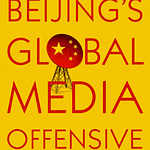
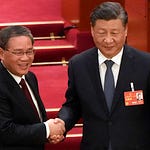
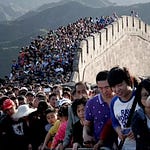
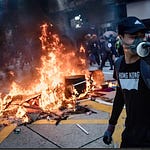
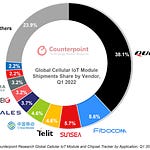

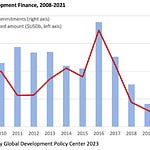
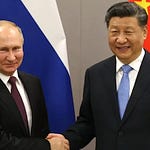
Episode 25: Is China Good for Africa?